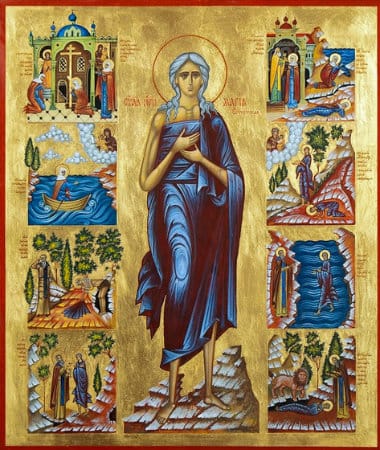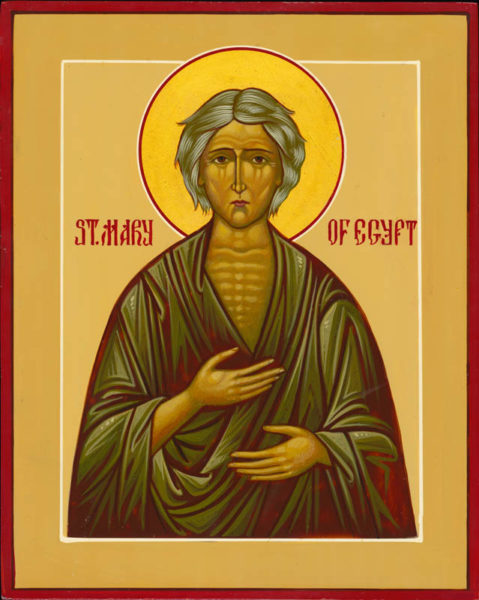 In the Great Canon of St. Andrew of Crete and on the Fifth Sunday of the Great Fast, we remember St. Mary of Egypt and read her life. The Great Fast is an activity of the whole Christian community to renew our faith and to come closer to Christ. This total renewal, however, must be seen through the lens of each and every Christian. Each of us must find this road in our journey. This is why we read the story of Mary, and of the holy man through which her repentance became known. What is of special interest is her moment of repentance, relevant to the story of each and every one of us. She was a shameless sinner, who came to the church of the Resurrection of Christ when his Cross was being venerated., but she was stopped from entering the church by some invisible force.
In the Great Canon of St. Andrew of Crete and on the Fifth Sunday of the Great Fast, we remember St. Mary of Egypt and read her life. The Great Fast is an activity of the whole Christian community to renew our faith and to come closer to Christ. This total renewal, however, must be seen through the lens of each and every Christian. Each of us must find this road in our journey. This is why we read the story of Mary, and of the holy man through which her repentance became known. What is of special interest is her moment of repentance, relevant to the story of each and every one of us. She was a shameless sinner, who came to the church of the Resurrection of Christ when his Cross was being venerated., but she was stopped from entering the church by some invisible force.
St. Mary realized that “The word of salvation gently touched the eyes of my heart and revealed to me that it was my unclean life which barred the entrance to me.” She immediately repented and was allowed to enter. She then received Holy Communion, and went into the desert to do penance. Her encounter with Zozimus was for one reason, to be able to receive Communion once again before departing this earthly life.
This story is a mirror of what the Great Fast must mean for us. We must repent of our uncleanness. Look, though – it is not the penance which gives her access to the body of Christ, it is her “metanoia,” her change of mind. This comes first. Yes, all of us must do penance for our unworthiness, but the important reality is our change of heart, becoming committed anew to our Lord. Self-denial comes then from this sincerity of heart in service to God. Holy Communion is the goal of our lives, but only God can make us worthy of this gift. Father James Townsend, who translated the Life of St. Mary of Egypt, wrote, “This life should not discourage us by the superhuman efforts of glorious Mary; it should instead give us hope and the will to take courage to begin our repentance.
As we go along the compunctionate path of repentance, God will give us the strength to go deeper and deeper into our souls, opening our whole life to him so that he can heal, restore and glorify it by uniting it to himself. To him be the glory forever. Amen.” Holy Mother Mary, pray for us.
 This Sunday of the breathtaking life of Saint Mary of Egypt is commemorated and presented to us sinners as an example of heroic hope in the mercy of the Lord and the heights it can raise us to.
This Sunday of the breathtaking life of Saint Mary of Egypt is commemorated and presented to us sinners as an example of heroic hope in the mercy of the Lord and the heights it can raise us to.